- Home
- Alex Berenson
The Silent Man Page 15
The Silent Man Read online
Page 15
“Jalal,” he said in Arabic. “So good to see you.”
“Nicholas,” Wells replied in Arabic. “My old friend.”
“They don’t have clubs like this in Beirut.”
“No, they don’t. But maybe one day. When the Syrians are gone and peace comes back.”
“We hope.” Rosette nodded to the man in the leather jacket. “Jalal, this is Roman.”
Wells extended a hand and Roman enveloped it in his own giant paw. The Russian was Wells’s height, six-two, and had a boxer’s squashed nose and small ugly eyes. They sat and Rosette lined up three shot glasses and filled them from a Stoli bottle in an ice bucket beside the table.
“A toast.” Rosette spoke in Russian. When he was done, Roman laughed and the three men emptied their glasses. Wells hadn’t drunk vodka straight since college. The liquid was cold and warm at the same time and left a pleasant burn in his throat.
“What did you say?” Wells said to Rosette.
“Old farmer’s toast. I want to buy a house, but I haven’t the money. I have the money to buy a goat, but I don’t want one. So here’s to having wants and needs come together.”
“The wisdom of the Russian serf.”
“Very deep. And now I must go. I hope the marriage is happy, both families approve.”
Rosette disappeared onto the dance floor. Wells sat in silence for a minute, watching the dancers. The worldwide cult of fast money spent stupidly. The worldwide cult of trying too hard. Moscow, Rio, Los Angeles, Tokyo, New York, London, Shanghai—the story was the same everywhere. The same overloud music, the same overpromoted brand names, the same fake tits, about as erotic as helium balloons. Everywhere an orgy of empty consumption and bad sex. Las Vegas was the cult’s world headquarters, Donald Trump its patron saint. Wells had spent ten years in the barren mountains of Afghanistan and Pakistan. He never wanted to live there again. But if he had to choose between an eternity there or in the supposed luxury of this club, he’d go back without a second thought.
Roman the Russian poured another shot for them.
“Drink,” he said in Arabic, rough but understandable.
“You know Arabic?”
“I was in Libya three years. A military adviser.” He raised his glass. “To our friend, the crazy Frenchman.” They drank.
“Do you know why this is called Ten Places? You’re supposed to be a billionaire to be in here. Ten places of wealth. A one and nine zeros. Of course, a billionaire in rubles isn’t the same as a billionaire in dollars, but even so.”
“I’m afraid I don’t qualify.”
“Well, then, let’s go.” Roman stood and Wells followed. They walked through the club, the dancers parting for Roman, careful not to touch him. But instead of taking the stairs to the front entrance, Roman led Wells to an exit behind the bar. They walked up a dimly lit staircase to an unmarked door.
“Go on,” Roman said. Wells pushed it open and emerged into an alley by the side of the club. Outside, a black Maybach waited, the oversized Mercedes limousine, with two men in front.
“Put your hands on the trunk and spread your legs,” Roman said. Wells did. Roman frisked him, thoroughly. “Empty your pockets.”
In his pockets Wells had only his special pens, a cell phone, his Lebanese passport, his packet of euros, and his wallet. All in Jalal’s name, of course.
Roman pocketed the phone and the packet of euros, gave back everything else, opened the Maybach’s door and steered Wells into the back. The sedan rolled off. Roman unzipped his jacket and slouched in the seat beside Wells. His hand hung loosely over a pistol tucked into a holster on his right hip.
“Jalal, tell me what you want.”
Wells did.
“And Rosette recommended us.”
“He said he’d worked with you.”
Roman frowned. “I want to believe you, Jalal. And the Frenchman and I have known each other a long time. But this plan of yours. You ask Russians for help against the Syrians, our allies.”
“Who else should I ask? The Americans? The Jews? Since 1975 the Syrians do what they want to us. We bring a million people to protest in Beirut, one Lebanese in five, it doesn’t matter. Have you ever been to Lebanon? Once it was beautiful. I’ll go to hell itself and ask the devil if he’ll help me.”
Roman pulled a sheet of paper from his jacket and unfolded it. He flicked on the Maybach’s backseat light, looked between the paper and Wells as though he were watching a tennis match. Finally he handed the sheet to Wells.
And Wells found he was looking at—
An old picture of himself. A printout of a photograph available on the Internet. His college yearbook headshot from Dartmouth.
Wells allowed a puzzled look to settle on his face. Best to stay relaxed. Even if Roman had already decided to kill him, he wouldn’t do so in a moving car. Too risky. “What is this?”
“You.”
“Not me.”
“No? Your cousin, maybe? Thinner, a little cleaner? You don’t see the resemblance?”
“Not really.” Wells handed back the paper. “Who is it?”
“John Wells. The American spy.”
“I am who I say,” Wells said. “See.” He reached into his pocket for his Lebanese passport and wallet.
“Don’t bother me with that.”
“I don’t see what this has to do with me. If you don’t want to make a deal, that’s fine. I’ll find someone else.”
“That’s all you have to say?”
“What else can I say? I am who I am. You’ve talked to Rosette.”
Roman tucked away the photograph, plucked out a cell phone and made a call. He spoke quietly in Russian for a few seconds, listened, spoke again. Wells couldn’t understand the words, but he knew now that Ivan Markov was too cautious ever to see him. At best, these men would take his money and put him on an Aeroflot flight to Damascus, let the Syrians have him.
At worst . . . at worst he’d been in tighter spots. Though this was close. Three on one, and the three all had guns. Wells only had the two pens . . . and the final surprise in his wallet. He put his passport away and tucked his wallet loosely against his hip.
Roman hung up, reached into his pocket for the packet of euros he’d taken from Wells. He thumbed through it, shook his head.
“I said fifty thousand. This is twenty-five.”
“I didn’t think I should bring it all at once.” A real spy would have handed over all the money at once, kept the transaction smooth. Wells had hoped his amateur act would help convince Roman he was who he claimed to be. But at this point, he doubted anything he did would matter.
“You don’t understand your position very well. Where’s the rest?”
“My hotel.”
“Where?”
Wells told him. Roman barked an order in Russian and the Maybach swung south.
“THIS IS IT?” Roman said when they reached the hotel. “Not very impressive.”
“I’m saving my money for you.”
“What room? And where’s the money?”
Wells told him. Roman said something to the bodyguard in the front seat. He nodded and got out. Wells reached for the door.
Roman clapped a hand on him. “You and I wait here.”
Wells didn’t argue. He had found out what he wanted to know. Roman was big, not fast. The Maybach was an exceptionally wide car and Roman had needed almost a full second to reach across to get him. Plenty of time for Wells. They sat silently in the back of the car until Roman’s phone rang for a second time. He had a quick conversation in Russian, hung up, and turned to Wells.
“You seem relaxed, Jalal. Why aren’t you nervous?”
“Why would I be nervous?”
“I accuse you of being an American spy. You deny it calmly. I ask you where you’ve hidden your money. You tell me.”
“It’s not mine.”
“Whose then?”
“It belongs to the Flowers.”
“You come to a country, you don’t
speak the language, you think you can hire men you’ve never met for this mission? You’re very stupid. Or you have something else in mind. Either way you’re too dangerous for me to deal with.”
Wells was silent, weighing his options. If he moved too soon, he’d destroy any chance at Markov. If he waited too long, he’d die. Coming here had been a mistake. He saw now. He’d always trusted his instincts, but this time they’d betrayed him. Or maybe he’d ignored them in his fury. Either way he’d made the most basic mistake. He’d underestimated his enemies, overreached, trapped himself.
He saw only one way out.
THREE MINUTES LATER, the bodyguard returned, holding the other packet of euros. Roman looked away, up at the guard. As he did, Wells drew a credit card from his wallet with his right hand. With his left hand, he reached for one of his special ballpoint pens, the stun gun.
The bodyguard handed the bills to Roman, who flipped through them.
“This is it?” he said to Wells.
“The other twenty-five thousand, yes.”
“Rosette said you had more. He said you had two hundred fifty thousand.”
“Not in the room.” Wells felt his pulse rise.
“Where, then?”
“You must think I’m a fool.”
“Call it a fee. For wasting our time.”
Wells pretended to consider the offer. “I’ll get it.” Wells reached for the door, and again Roman reached for him.
“You’re not—”
BUT ROMAN NEVER GOT to finish his sentence, or say anything else at all.
As he grabbed Wells’s right arm, Wells twisted toward him. With his left hand, Wells jabbed the stun gun through Roman’s black wool Armani pants and into the meat of his thigh. The electricity flowed and Roman yelped, a clotted grunt of pain, and twisted back and reached down for the stun gun to tear it away from his leg. The simplest of errors. Roman should have gone for his pistol. Instead he’d become fixated on the fire in his leg. He would pay for that mistake with his life. As he reached down, Wells slashed upward with his right hand, the hand that held the card.
Unfortunately for Roman, the card wasn’t a typical MasterCard. Its top edge was actually a steel blade sharp enough to cut glass. Wells sliced the blade into Roman’s neck, under his chin, through skin and fat and muscle. At the same time, he dropped the stun gun and wrapped his left hand around the back of Roman’s neck and jerked Roman’s head forward, pulling his neck deeper onto the blade, cutting the carotid in half. Roman screamed, the pure high terror of a desperate animal. His hands flew up as he tried to stanch the blood pouring out of his neck. But he had no chance. His eyes rolled up as bright red arterial blood pumped out and he began to die a messy death. He slumped forward onto Wells, his body shielding Wells from the bodyguards.
Wells slid his left hand down Roman’s back and reached for Roman’s pistol. He grabbed it and dropped the safety and aimed across the back of the Maybach and fired three times, the shots echoing in the car. With Roman’s body blocking him, Wells couldn’t see where he was shooting, but with only six feet between him and the guard, he didn’t care. He heard the guard scream and thump against the side of the car. He shifted the pistol toward the driver’s seat and pulled the trigger three more times, catching the Maybach’s driver as he turned toward Wells. The driver twitched in his seat and groaned and fell silent.
And then Roman’s groans were the only sound in the car. He seemed to be trying to speak, but Wells wasn’t sure. The guttural sounds he made were the static from a radio at the edge of the dial, half-heard words fading into haze. Was he apologizing, begging for mercy, promising revenge? No matter. He had nothing left to do but die. He would die and Wells would live.
Wells reached into Roman’s jacket pocket and grabbed his cell phone and Roman’s own cell phone, both slick with blood. Wells pushed Roman onto his back on the floor of the Maybach and stepped out of the car. Lights had flickered on in the apartment buildings beside the hotel, but no one was on the street and there were no sirens yet. Wells tossed his jacket, soaked with blood, into the back beside Roman. Then he dumped the driver’s body on the ground. He slipped in behind the wheel and left the driver and the bodyguard behind. He tried not to listen, but he couldn’t escape hearing every gurgling breath as Roman wound down to silence.
FORTUNATELY FOR WELLS, the local Moscow police, unlike the FSB, were understaffed and underpaid, slow to respond to crimes outside the golden district around the Kremlin. Wells headed south and east and didn’t hear the first distant sirens until he’d been driving for seven minutes, easily enough to get him outside the danger zone. He drove for a few minutes more and then ditched the Maybach in an alley off a narrow street that was just a couple yards from a metro station. The car would be found by morning, but he had no choice.
Wells cut the lights and sat in the silent Maybach. He wanted to explode, to put a fist through the window, but he controlled his anger. He’d played the fool too many times already tonight. He’d blown his chance at Markov and at Kowalski, too. He’d killed three men and missed the real target. He’d made it impossible for the agency ever to investigate the attack on him and Exley. How could they approach the Russians about Markov? At best, both sides would pretend that the twin attacks in Washington and Moscow had never happened. At worst, depending on how much juice Markov had with the Kremlin, Russia might feel the need to retaliate for what Wells had done, and the FSB and CIA would get drawn into tit-for-tat killings. Not what the world needed.
Well, at least Nicholas Rosette would be able to tell Shafer that he’d repaid his debt for whatever had happened in the Congo all those years before.
Wells washed his hands and face of Roman’s blood as best he could with the dregs of a water bottle the Maybach’s driver had carried. The driver’s overcoat, long blue wool, was on the seat beside him. Wells grabbed it and stepped out and pulled on the coat, hiding his bloody shirt and pants. As long as no one looked too closely, he’d be all right. He walked toward the subway, listening to the distant sirens. He dumped Jalal Sawaya’s passport into a sewer grate. Jalal was as dead as Roman and his bodyguards. Wells would book a ticket on Delta in the morning, the first flight out, and depend on an American passport and the name Glenn Kramon to get home.
12
NORTH ATLANTIC OCEAN
The field was striped orange and black like a cartoon tiger’s stripes. All the players wore army uniforms. The man dribbling the ball was a general. Nasiji could tell from the stars on his shoulders. Defenders came at him, but he flung them aside and no referee seemed to care. The general had no face, but even so Nasiji recognized him. Khalid, his father. Nasiji raised a fist to cheer—
And suddenly the field turned into a wide Baghdad street, rising toward an overpass. Not that way, Nasiji tried to say. Go around. But he couldn’t get the words out of his throat and then the road pitched sideways and Nasiji knew what was about to happen and—
A hand squeezed his shoulder. He flung up a fist, nearly striking Yusuf. Yusuf ? Baghdad disappeared as Nasiji got his bearings. Nothing had changed. He was lying on a narrow bed in a windowless cabin, its walls a drab gray. At his feet, the desk where his books were strapped down so they wouldn’t go airborne when the waves got fierce. And in the corner, the crates. Of course the crates. The two big ones that held the bombs, the long narrow one that carried the SPG rifles, and finally the small one that held the rounds.
Nasiji ran a hand over his fevered face. The dream had left him sick. The dream or the waves. He’d rather be anywhere, even fighting the Shia in Ghazaliya, than this ship.
“Sayyid,” Yusuf said.
“I’m fine,” Nasiji said. “Tired of this useless ocean, is all. Ready to land so we can work.”
Yusuf nodded, though he didn’t seem convinced. Nasiji sat up and put a hand against the wall to steady himself. The swells were worse this morning. The worst part was that he could have avoided this misery. Bernard had warned him back in Hamburg, but he hadn’t listened
. No matter. Soon enough they’d be back on land.
“Do you need the bucket?” Yusuf said.
A soft rap on the cabin’s door. Haidar, the little Algerian who brought their meals, stood outside. “Sirs, the captain asks you to come up at eleven hundred. Would you like breakfast?”
The boat rolled lightly to the left, then harder to the right. Nasiji’s guts rose into his throat. He squeezed his eyes shut and groaned.
“Not today, I think,” Yusuf said.
FOR NINE DAYS, the Juno had sailed west at a steady sixteen knots across the Atlantic. For most of the trip, the sky had been a leaden gray, bringing squalls of rain, snow, and a harsh icy sleet. Nasiji and Yusuf rarely left their cabin. Haidar brought them meals, thick meat stews and mashed potatoes, strange food that sat in Nasiji’s stomach and cramped his bowels.
To pass the time, he studied the physics textbooks he’d brought on board, readying himself for the bomb-making problems he would soon have to solve. When he’d read all he could, he played chess with Yusuf on the little magnetic board that had belonged to Grigory Farzadov until his detour to the bottom of the Black Sea. Nasiji thought of himself as a solid player. But to his irritation, he lost to Yusuf as often as he won. The Syrian knew dozens of openings, and Nasiji always seemed to be playing from behind.
Now, as Haidar closed the door to their cabin, Yusuf picked up the board. “A game? Or are you too sick?”
“Sure,” Nasiji said.
Yusuf set up the pieces and sat beside Nasiji. “Promise something, Sayyid.”
“What’s that?”
“If I win, you’ll tell me how we’re going to make them work.” Yusuf nodded at the crates, which were attached to the floor of the cabin with thick steel chains.
“That again.” For days, Yusuf had asked Nasiji to explain the plan. Nasiji had refused, for no particularly good reason. He supposed that part of him enjoyed twitting Yusuf. “All right. But I play white. And if I win, or even if we draw, you’ll stop asking about it until we get to the United States.”

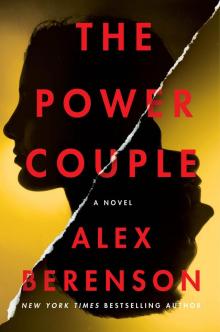 The Power Couple
The Power Couple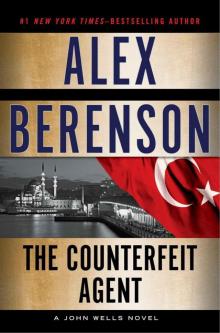 The Counterfeit Agent
The Counterfeit Agent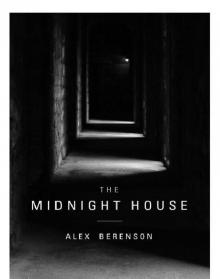 The Midnight House
The Midnight House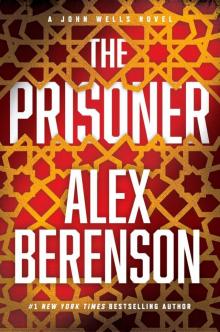 The Prisoner
The Prisoner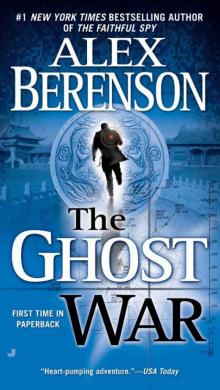 The Ghost War
The Ghost War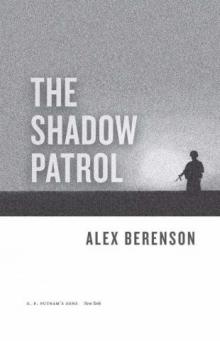 The Shadow Patrol jw-6
The Shadow Patrol jw-6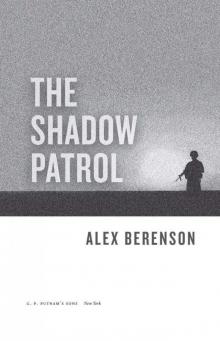 The Shadow Patrol
The Shadow Patrol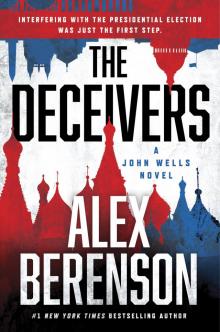 The Deceivers
The Deceivers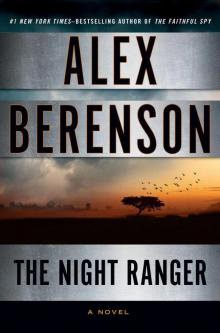 The Night Ranger jw-7
The Night Ranger jw-7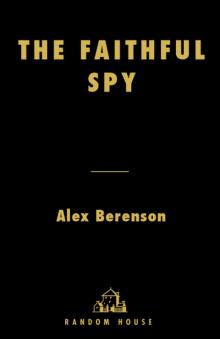 The Faithful Spy
The Faithful Spy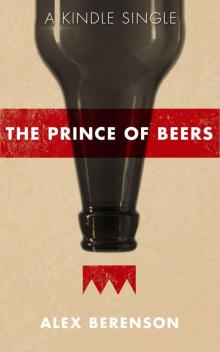 The Prince of Beers (Kindle Single)
The Prince of Beers (Kindle Single)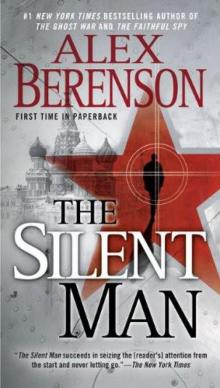 The Silent Man jw-3
The Silent Man jw-3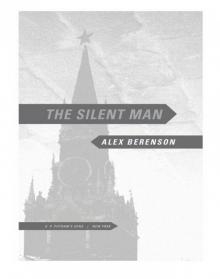 The Silent Man
The Silent Man The Wolves
The Wolves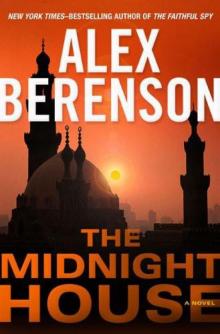 The Midnight House jw-4
The Midnight House jw-4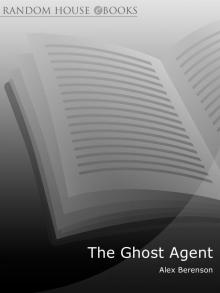 The Ghost Agent
The Ghost Agent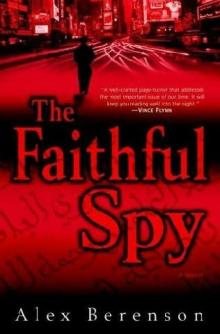 The Faithful Spy jw-1
The Faithful Spy jw-1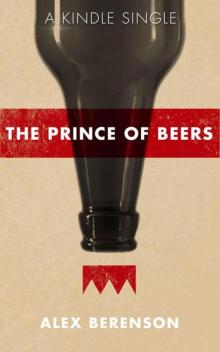 The Prince of Beers
The Prince of Beers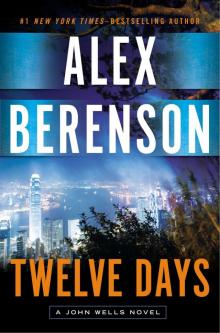 Twelve Days
Twelve Days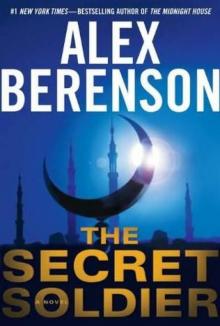 The Secret Soldier jw-5
The Secret Soldier jw-5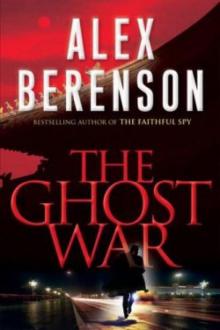 The Ghost War jw-2
The Ghost War jw-2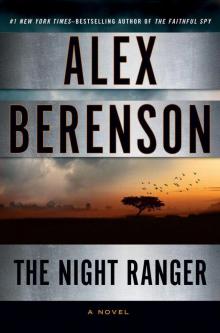 The Night Ranger
The Night Ranger